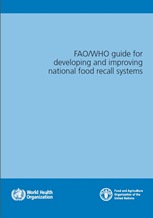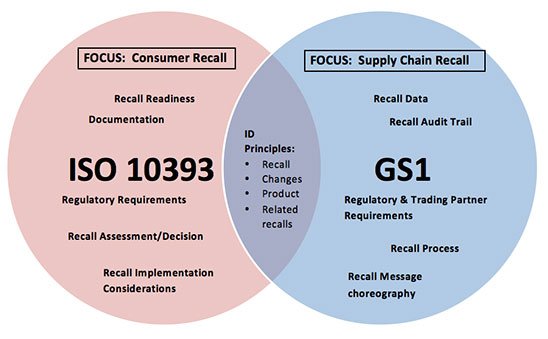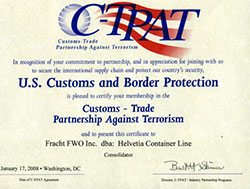FAO/WHO Guide for Developing and Improving National Food Recall Systems

The Food and Agriculture Organization of the United Nations (FAO) and the World Health Organization (WHO) published this document, FAO/WHO guide for developing and improving national food recall systems, in late 2012. It acts as a best practice guideline based on the application of risk analysis principles and procedures during food safety events. The guideline is intended as an essential guide on how to set up and structure national food recall systems. Effective public sector food recall systems are a foundational element in food risk management and effective responses to food safety crises. Many economies are in need of guidance in setting up effective food recall systems and a food safety regulatory framework.
The following are brief excerpts from the contents of the FAO/WHO guidance document for food recall systems:
Step 1. Understanding the importance of shared responsibilities
The first step in the development or improvement of national food recall systems is to understand and emphasize the importance of the shared responsibility between the government/competent authority and the food industry. This includes acting decisively and rapidly to remove unsafe food from the market and to inform consumers of the problem when the unsafe food has reached them, in the interest of protecting public health.
Step 2. Review of the current national food recall system
When developing national food recall systems, and in order to build on or improve the current situation where necessary, it is important to consider whether the following key elements are included in a food recall system:
- A legal framework enabling powers of the competent authority;
- Clearly assigned roles and responsibilities of the implementing partners (food business operators and competent authorities);
- Capability for effective and timely risk management decision-making
- Provision/availability of guidance materials and training;
- An effective mechanism for information exchange among the implementing partners;
- Procedures for effective communication with media and consumers.
Step 3. Consideration of general issues relative to food recall systems
It is beneficial for national food recall systems to be established as an important part of an effective national food control system. However, even the absence of a well-developed national food control system should not preclude the development of a national food recall system.
Step 4. Consideration of country-specific issues for food recall systems
The development or improvement of national food recall systems involves taking into consideration the government’s structure, organization and capabilities, and the level of development of the sectors within the food chain. Therefore, the competent authority may need to consider a list of minimum requirements that are realistic to perform during the implementation of food recalls.
——————————————————-
Additional articles on Food Recalls:
- Food Recalls Overview
- Overview of Major Food Recall Portals in the Public and Private Sectors
- Product Recall Standards for Food: GS1 and ISO 10393 Overview
To have more articles like this emailed to your inbox, become a GFSR Member today!

-
 FeaturedRisk management
The Cost of a Breach: What a Cyberattack Could Mean for Food Safety Recalls
FeaturedRisk management
The Cost of a Breach: What a Cyberattack Could Mean for Food Safety Recalls
-
 FeaturedRisk management
Securing the Food Chain: How ISO/IEC 27001 Strengthens Cybersecurity
FeaturedRisk management
Securing the Food Chain: How ISO/IEC 27001 Strengthens Cybersecurity
-
 FeaturedRisk management
Revolutionizing Food Safety Training: Breaking Out of the “Check-the-Box” Mentality
FeaturedRisk management
Revolutionizing Food Safety Training: Breaking Out of the “Check-the-Box” Mentality
-
 GFSI Standards
GFSI 2025: Building Trust, Tech-Forward Solutions, and Global Unity in Food Safety
GFSI Standards
GFSI 2025: Building Trust, Tech-Forward Solutions, and Global Unity in Food Safety
-
 FeaturedFood Safety
Integrated Pest Management: Strategies to Protect Your Brand’s Reputation
FeaturedFood Safety
Integrated Pest Management: Strategies to Protect Your Brand’s Reputation
-
 FeaturedFood Safety Culture & Training
No Open Door Policy: Challenges That Impact Pest Control in Food Processing Plants
FeaturedFood Safety Culture & Training
No Open Door Policy: Challenges That Impact Pest Control in Food Processing Plants



